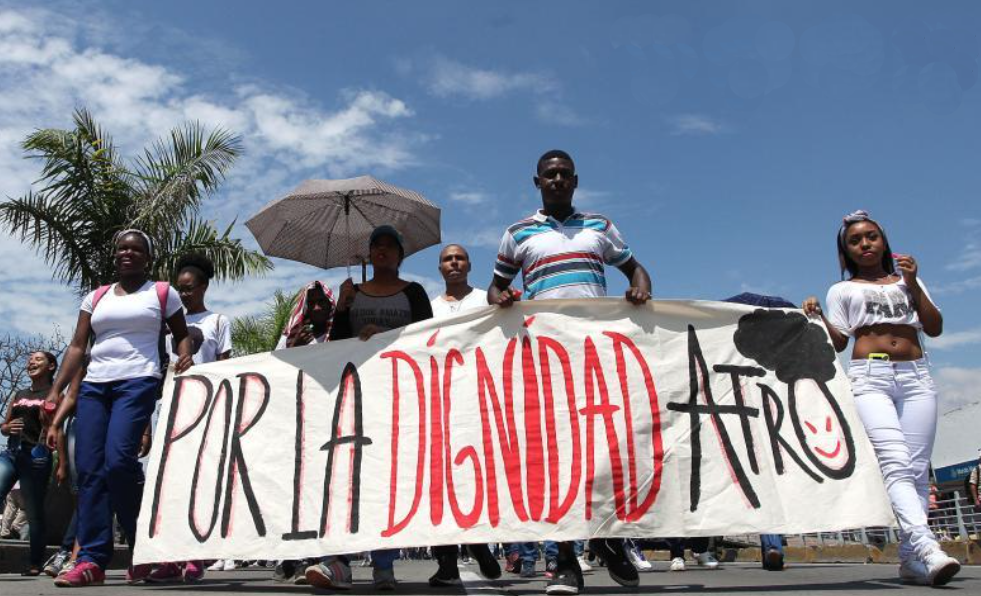On August 31, the International Day for People of African Descent was celebrated. This date was created in 2020 by the United Nations to promote respect for the human rights and fundamental freedoms of people of African descent and greater recognition and respect for the diversity of their heritage, culture and contribution to the development of societies. This commemoration takes on special significance in Latin America, which has a large Afro-descendant diaspora and whose history, economy, politics, and culture cannot be understood without considering the contributions of this group.
The most recent demographic estimates, according to ECLAC in 2020, indicate that there were 133.9 million Afro-descendants in Latin America, which corresponds to two out of every ten Latin Americans. The Afro-descendant population is significant throughout the region and is becoming more visible year after year.
Its importance is fundamental in countries such as Brazil, which alone has an estimated population of 108 million Afro-descendants, but it is also significant in the Caribbean, Central America and the Andean region. In addition, the prevalence of Afro-descendants in urban areas stands out, at least in the countries of the Andean sub-region, where more than 70% of Afro-descendants live in cities.
However, due to a history of exclusion and inequality, Afro-descendants have much higher poverty rates than the non-Afro-descendant population. In the case of Colombia, for example, poverty among Afro-descendants reaches one out of four people, while among non-Afro-descendants it affects just over one out of ten. In Ecuador, the poverty rate among this group surpasses 3 out of ten people, while among non-Afro-descendants it affects just under two.
Celebration of memory and restorative justice
The creation in 2020 of an International Day for People of African Descent by the United Nations is an important step in recognizing the contributions of people of African descent and their rights, including the right to memory and restorative justice. The date commemorates August 31, 1920, when the first International Convention of the Negro Peoples of the World was concluded in New York and which, as a result of deliberations led by the Afro-descendant preacher, journalist and activist Marcus Garvey, led to the promulgation of the Declaration of the Rights of the Negro Peoples of the World. This was two decades before the United Nations Declaration on Human Rights.
To realize the importance of this event, it is necessary to remember that in 1914 Marcus Garvey and his wife Amy Ashwood founded in Jamaica the Universal Negro Improvements Association (UNIA), which by 1920 already had more than two million members worldwide. That year, on August 13, UNIA financed the International Convention of the Negro Peoples of the World, with the participation of more than 2,000 delegates from 20 countries, which concluded with a march of some 25,000 black people in New York’s Madison Square Garden.
At the end of the meeting, the “Declaration of the Rights of the Negro Peoples of the World” was proclaimed. Among other contributions, this declaration highlighted universal rights, the rights of people of African descent, the rights of Africa and the right to protest. However, according to Austrian researcher Johannes Maerk, the impact of the declaration caused the persecution of Garvey in the United States.
The recognition of a World Day for People of African Descent in 2020 has important precedents in the international community. In 1997, the United Nations convened the Third World Conference against Racism, Racial Discrimination, Xenophobia and Related Intolerance, which was held in Durban in 2001. As a result of this conference, a Durban Declaration and the Durban Program of Action were created, which have set the political agenda for people of African descent in the world. In addition, in 2009, 2011 was proclaimed the International Year for People of African Descent, while in December 2013, the International Decade for People of African Descent (2015-2024) was proclaimed with the theme “People of African Descent: Recognition, Justice and Development”.
However, the problems of poverty, exclusion and discrimination faced by people of African descent, especially in Latin America, require a framework of development actions as restorative justice measures. According to the Inter-American Commission on Human Rights (IACHR), the latter concept is derived from the framework of transitional justice and defines a type of justice that seeks the adoption of measures to repair in some way the harm caused to victims as a result of rights violations.
The IACHR chose to use the term reparative justice instead of “restorative justice,” since the latter is more frequently used in the field of criminal law whose purpose is conflict resolution and whose emphasis is on the prevention and effects of crime. The IACHR recognizes this approach, but defends that the use of the concept of restorative justice does not refer to a new standard, but rather that the Inter-American System is integrating a model of effective justice focused on reparations to combat structural racial discrimination.
Taking into account the historical exclusion and violence expressed against the Afro-descendant Latin American population, the conceptual development of a theory of reparative justice for Afro-descendant victims of slavery would allow for an interpretative shift in the challenging evolution of Afro-descendants in terms of obstacles to the guarantee of human rights.
Translated from Spanish by Janaína Ruviaro da Silva











